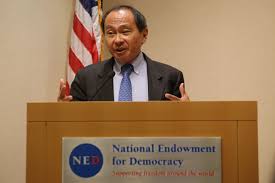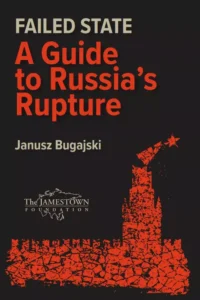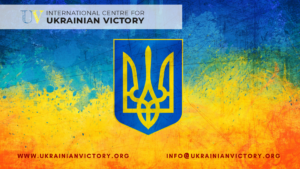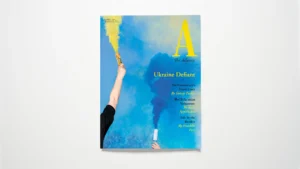Though Putin had the reputation of a strategic genius when he started this war 6 months ago, the #Ukrainians have exposed him as a plodding and unimaginative thinker who miscalculated enormously, ” @PhillipsPOBrien writes for @TheAtlantic https://t.co/JBidC4ajFX
— Democracy Digest (@demdigest) September 8, 2022
The US secretary of state, Anthony Blinken, told Volodymyr Zelenskiy the war with Russia was in a “pivotal moment” as Ukraine’s military continues its counteroffensive in the south of the country.
AP reports that he told Zelenskiy: “We know this is a pivotal moment, more than six months into Russia’s war of aggression against Ukraine, as your counteroffensive is now under way and proving effective.” Blinken’s surprise trip to Kyiv came after the United States unveiled nearly $2.7bn (£2.4bn) in new military support to Ukraine and other European countries threatened by Russia.
What Zelensky has done is demonstrate what it’s like to do a national, patriotic defense of liberal values, says historian Anne Applebaum. He’s very much defending a free society, an open society, but also a multicultural society, she tells The Atlantic’s Jeffrey Goldberg:
He’s not living some exceptional life. He’s not escaped to Monaco. He’s suffering the same things [his people] are and feeling what they feel. And I think it’s become very politically effective to do that. I mean, and you can even see it by what he’s wearing.

Former NED board member Francis Fukuyama
The war in Ukraine, now in its seventh month, marks a critical juncture that will determine the course of global democracy. There are three important points to be made about its significance, Francis Fukuyama writes for the Journal of Democracy:
- First is the question of why the war occurred in the first place. The argument was made, even before the Russian invasion, that Vladimir Putin was being driven by fear of NATO expansion and was seeking a neutral buffer to protect his country. While Putin doubtless disliked the idea that Ukraine could enter NATO, this was not his real motive. ….The real threat perceived by Putin was in the end not to the security of Russia, but to its political model. He has asserted that liberal democracy didn’t work generally, but was particularly inappropriate in the Slavic world. A free Ukraine belied that assertion, and for that reason had to be eliminated.
- The second critical point concerns Western solidarity in support of Ukraine. Up to now, the continuing supply of weapons and economic sanctions have been absolutely critical to Ukraine’s ability to resist Russian power. The prospect that Ukraine can actually regain military momentum is entirely possible; indeed, it is likely in my view and unfolding as we speak…..More broadly, morale on the Ukrainian side has been immensely higher than on the Russian side.
- Thirdly, a Russian military failure—meaning at minimum the liberation of territories conquered after 24 February 2022—will have enormous political reverberations around the world. …. Putin, isolated during the pandemic and out of touch with the reality both of his own military and of public opinion in Ukraine, believed that he would be greeted there as a liberator. China, for its part, is seeing its rate of growth tanking as the result of a “zero-Covid” policy that its paramount leader, Xi Jinping, seems determined not to waver from. Western democracies, by contrast, have appeared united and determined in the face of this challenge.
 Russia’s war in Ukraine has demonstrated that the Kremlin does not respect the fundamentals of international law or the sanctity of international borders. This imperialistic foreign policy may soon rebound on Russia itself, argues Janusz Bugajski, a senior fellow at the Jamestown Foundation in Washington DC. Russia’s territorial integrity looks set to become increasingly disputed by the country’s numerous internal republics and regions as the disastrous invasion of Ukraine serves as a catalyst for imperial collapse, he writes for The Atlantic Council.
Russia’s war in Ukraine has demonstrated that the Kremlin does not respect the fundamentals of international law or the sanctity of international borders. This imperialistic foreign policy may soon rebound on Russia itself, argues Janusz Bugajski, a senior fellow at the Jamestown Foundation in Washington DC. Russia’s territorial integrity looks set to become increasingly disputed by the country’s numerous internal republics and regions as the disastrous invasion of Ukraine serves as a catalyst for imperial collapse, he writes for The Atlantic Council.
My new book, Failed State: A Guide to Russia’s Rupture, contends that the Russian Federation has been unable to transform itself into a nation-state, a civic state, or even a stable imperial state. The approaching rupture of the Russian Federation will be the third phase of imperial collapse following the unraveling of the Soviet bloc in Eastern Europe and the disintegration of the Soviet Union in the late 1980s and early 1990s.
Western governments should simultaneously declare support for democracy and federalism in Russia as well as the rights of republics and regions to determine their sovereignty and statehood, Bugajski adds. This can help embolden citizens by demonstrating that they are not isolated on the world stage. As the process unfolds, linkages must be developed with emerging states and closer coordination pursued with all of Russia’s neighbors directly affected by the rupture of Europe’s last imperial construct.
 But as winter approaches, cracks in the West’s support for Ukraine are starting to show, notes POLITICO’s Matthew Karnitschnig.
But as winter approaches, cracks in the West’s support for Ukraine are starting to show, notes POLITICO’s Matthew Karnitschnig.
Russia has worked to undermine public trust in democratic governments for years with a toxic cocktail of social media disinformation and political subterfuge, primarily through its support for the very fringe elements now fomenting protest movements, he writes. The main goal of these efforts is not to convert Europeans into supporters of Russia (though the Kremlin would welcome that), but rather to polarize and destabilize Western politics to such a degree that voters don’t know what to believe.
“There’s no question that Putin is winning in this regard,” said a senior Commission official.
In Western Europe, 40 percent of the population supports sending arms and funding to Ukraine, according to a survey published this week by Open Society Foundations. While that’s higher than in other parts of the world, it’s far from a clear majority, Karnitschnig adds.
 Though Vladimir Putin had the reputation of a strategic genius when he started this war six months ago, the Ukrainians have exposed him as a plodding and unimaginative thinker who miscalculated enormously, adds Phillips Payson O’Brien, a professor of strategic studies at the University of St. Andrews in Scotland. Since then he has resorted to ponderous, unthinking offensives that have secured minimal gains at a very high cost, he writes for The Atlantic.
Though Vladimir Putin had the reputation of a strategic genius when he started this war six months ago, the Ukrainians have exposed him as a plodding and unimaginative thinker who miscalculated enormously, adds Phillips Payson O’Brien, a professor of strategic studies at the University of St. Andrews in Scotland. Since then he has resorted to ponderous, unthinking offensives that have secured minimal gains at a very high cost, he writes for The Atlantic.







